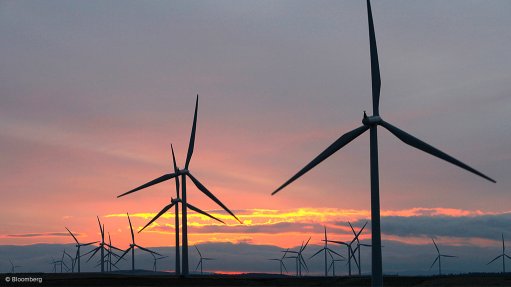
Although climate change-related finance in Africa still comes overwhelmingly from public institutions, such funding from the private sector is growing fast. This was highlighted in the ‘Climate Financing in Africa: Strategies for the Future ’report, released late last month by the African Private Sector Capital Association (AVCA) and the Tony Blair Institute for Global Change (TBI).
While governments, development aid agencies and development finance institutions were together responsible for $23.6-billion in climate financing in the continent in 2019/20, the private sector contributed only $3.4-billion. However, over the decade from 2012 to 2022, private-sector climate funding in Africa increased fourfold and had, over this period, totalled $17.4-billion.
These private-sector investments were spread across 822 separate business deals. These included 333 ventures in the clean energy and technology sector, with a total value of $14-billion, which came to 81% of total private investments by value. Climate solutions ventures saw 251 deals, with a value of $2.3-billion. Low carbon projects numbered 96, worth $0.3-billion. Low carbon project funding had the highest compound annual growth rate, of 23%, between 2002 and 2022.
Although 49% of these private investments were made into technology or technology-enabled companies and projects, only 0.2% of global climate technology investments were made into Africa.
Investment SourcesThe sources of these investments (into all climate-related sectors, not technology alone) were, in 2022, venture capital (63%, by volume, of all the deals), private equity (16.5%), private debt (13.5%) and infrastructure (7%).
In terms of the African entities that received this funding, the biggest category was utilities, which received $14.6-billion, or 84% of the total by value, and 42% by deal volume. These investments were predominantly into renewable energy projects, and particularly solar energy plants. Solar accounted for 49% of the utilities deals.
The other main areas for private climate funding in Africa were information technology (IT), which accounted for 18% of the deals, by volume, followed by the consumer discretionary category (13%). The majority of IT investment (55% of deals) was into semiconductor manufacturing, these being essential components in renewable energy technologies.
In terms of geography, the region which saw the greatest number of deals by volume was East Africa, which had a 32% share and was dominated by Kenya. The region that saw the greatest inflow of “green capital” was West Africa (25% by value), although the biggest element in this ($2.7-billion) was to fund a series of projects in Ghana. Southern Africa saw 18% of total deals by volume and 19% by value, driven by South Africa’s performance, which the report described as “strong”.
TheAVCA and the TBI surveyed private- sector climate investors in Africa. They found that 82% reported strong business cases and sufficient financial incentives for climate investments across the continent. The investors identified the most attractive investment sectors as renewable energy (71%), agriculture (47%) and transport (35%). But only 6% thought that Africa’s investment readiness was high enough to leverage climate-resilient investment. The investors identified the three biggest barriers to private climate investment in Africa as a dearth of large bankable opportunities (71%), a high risk-to-return profile (53%) and unclear national-level climate policy objectives (41%).